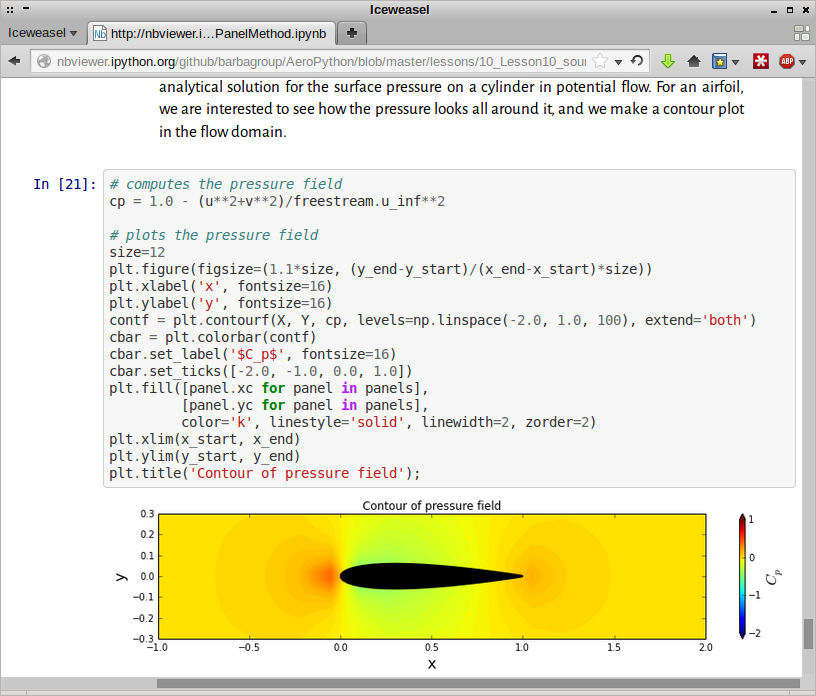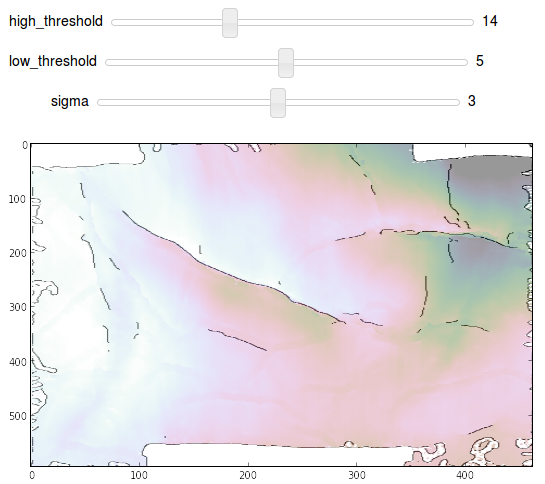SciPy will eat the world... in a good way
/ We're at the SciPy 2014 conference in Austin, the big giant meetup for everyone into scientific Python.
We're at the SciPy 2014 conference in Austin, the big giant meetup for everyone into scientific Python.
One surprising thing so far is the breadth of science and computing in play, from astronomy to zoology, and from AI to zero-based indexing. It shouldn't have been surprising, as SciPy.org hints at the variety:
 There's really nothing you can't do in the scientific Python ecosystem, but this isn't why SciPy will soon be everywhere in science, including geophysics and even geology. I think the reason is IPython Notebook, and new web-friendly ways to present data, directly from the computing environment to the web — where anyone can see it, share it, interact with it, and even build on it in their own work.
There's really nothing you can't do in the scientific Python ecosystem, but this isn't why SciPy will soon be everywhere in science, including geophysics and even geology. I think the reason is IPython Notebook, and new web-friendly ways to present data, directly from the computing environment to the web — where anyone can see it, share it, interact with it, and even build on it in their own work.
Teaching STEM
 In Tuesday's keynote, Lorena Barba, an uber-prof of engineering at The George Washington University, called IPython Notebook the killer app for teaching in the STEM fields. She has built two amazing courses in Notebook: 12 Steps to Navier–Stokes and AeroPython (right), and more are on the way. Soon, perhaps through Jupyter CoLaboratory (launching in alpha today), perhaps with the help of tools like Bokeh or mpld3, the web versions of these notebooks will be live and interactive. Python is already the new star of teaching computer science, web-friendly super-powers will continue to push this.
In Tuesday's keynote, Lorena Barba, an uber-prof of engineering at The George Washington University, called IPython Notebook the killer app for teaching in the STEM fields. She has built two amazing courses in Notebook: 12 Steps to Navier–Stokes and AeroPython (right), and more are on the way. Soon, perhaps through Jupyter CoLaboratory (launching in alpha today), perhaps with the help of tools like Bokeh or mpld3, the web versions of these notebooks will be live and interactive. Python is already the new star of teaching computer science, web-friendly super-powers will continue to push this.
Let's be extra clear: if you are teaching geophysics using a proprietary tool like MATLAB, you are doing your students a disservice if you don't at least think hard about moving to Python. (There's a parallel argument for OpedTect over Petrel, but let's not get into that now.)
Reproducible and presentable
Can you imagine a day when geoscientists wield these data analysis tools with the same facility that they wield other interpretation software? With the same facility that scientists in other disciplines are already wielding them? I can, and I get excited thinking about how much easier it will be to collaborate with colleagues, document our workflows (for others and for our future selves), and write presentations and papers for others to read, interact with, and adapt for their own work.
To whet your appetite, here's the sort of thing I mean (not interactive, but here's the code)...
If you agree that it's needed, I want to ask: What traditions or skill gaps are in the way of this happening? How can our community of scientists and engineers drive this change? If you disagree, I'd love to hear why.
Here's Lorena Barba's keynote talk on reproducibility, the flipped classroom, and teaching with Notebooks. Skip to 11:30 for the start of Lorena's talk.









 Except where noted, this content is licensed
Except where noted, this content is licensed